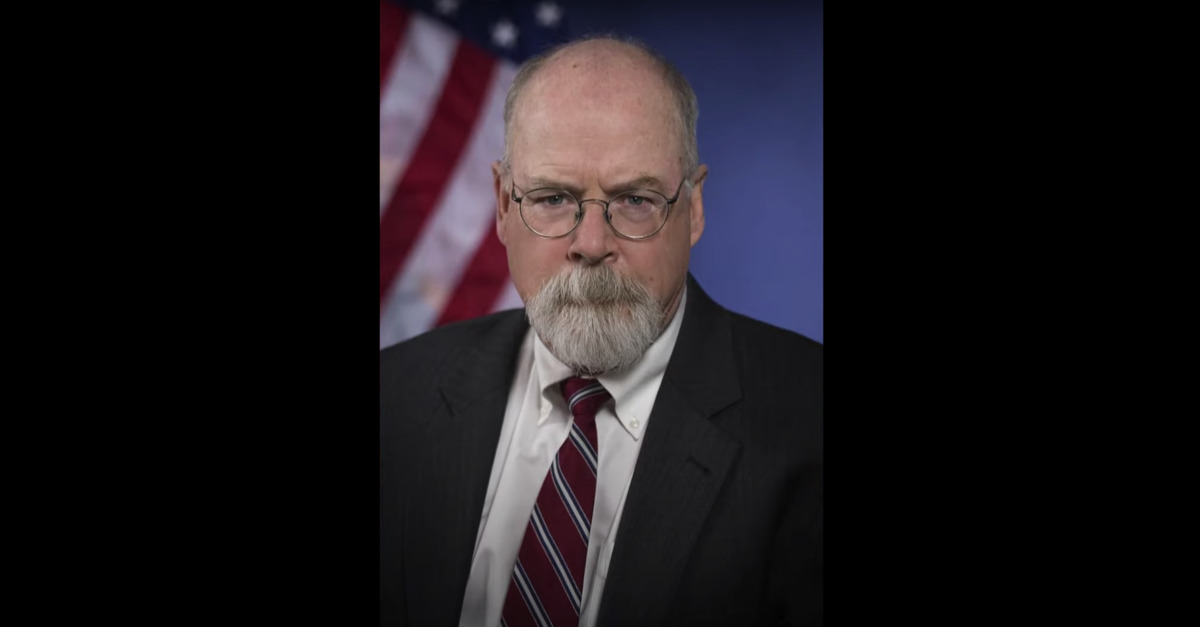
Federal agents arrested the primary analyst who worked on the infamous Steele dossier as part of the ongoing special counsel inquiry led by former U.S. attorney John Durham.
Originally reported by The New York Times, which cited anonymous sources said to be “familiar with the matter,” analyst Igor Danchenko was taken into custody on the strength of a sealed indictment.
The defendant is now the third person to be charged in the controversial investigation into the origins of the Russiagate inquiry that dogged most of the administration of then-President Donald Trump. According to a Times report from October 2020, Danchenko described his role as that of gathering “raw intelligence” for Steele, who hired him, and to pass along any claims that raised a potential “red flag.”
“Even raw intelligence from credible sources, I take it with a grain of salt,” the defendant told the Times last year. “Who knows, what if it’s not particularly accurate? Is it just a rumor or is there more to it?”
After the Times published their story, the Washington Post and Associated Press both confirmed Danchenko’s indictment.
“Some claims from the Steele dossier made their way into an F.B.I. wiretap application targeting a former Trump campaign adviser in October 2016,” journalists Adam Goldman and Charlie Savage reported.
We now know that Danchenko was indicted on five false statements counts.
Fusion GPS, the firm that put together former MI6 agent Christopher Steele’s dossier, was originally funded by a conservative website. The Hillary Clinton campaign and the Democratic National Committee went on to fund Fusion GPS for the research that led to the Steele dossier, a largely discredited opposition research report. It contains severally unverified and salacious claims about the 45th president, some of which have been outright refuted, including the so-called “pee tape.”
Danchenko was previously interviewed by FBI agents in 2017 when efforts to scrutinize the dossier’s claims were undertaken by then-special counsel Robert Mueller. That raised the possibility that Danchenko might also be facing charges similar to those recently filed against Michael Sussmann, a high-profile cybersecurity lawyer who previously worked for the Clinton campaign.
As Law&Crime previously reported, Sussman was indicted in the U.S. District Court for the District of Columbia in late September on one charge of lying to federal agents over aspects of a cybersecurity presentation given to the FBI–including whether he was there on behalf of a client and, if so, who exactly he was working for at the time.
The 2020 Times report on Danchenko also offers the following clues about what the sealed indictment might claim:
[T]he F.B.I. identified Mr. Danchenko as a source for Mr. Steele and he agreed — in exchange for immunity and a promise of confidentiality — to detail his work. The bureau later told a judge its agents found him “truthful and cooperative,” although an F.B.I. analyst told an inspector general that Mr. Danchenko might have been “minimizing” certain facts about his interactions with his sources.
The interview suggested that aspects of the dossier were misleading. Mr. Steele left unclear that much of the material was thirdhand information, and some of what Mr. Danchenko had relayed was more speculative than the dossier implied. While the F.B.I. never used the Ritz-Carlton story, it had cited other claims from the dossier in applications for wiretaps, and the inspector general criticized the bureau for continuing to do so after interviewing Mr. Danchenko without alerting judges that he had cast doubt on the dossier.
Danchenko’s role in the preparation of the Steele dossier led to political retribution by way of Sen. Lindsey Graham (R-S.C.), who latched onto revelations that the researcher himself came under the microscope of the intelligence community in the past due to his prominence as a Russia expert. Graham, essentially, called Danchenko a dupe for Russian Federation President Vladimir Putin.
“I’ve never been a Russian agent,” Danchenko said last year. “It is ridiculous to suggest that. This, I think, it’s slander.”
Before the Danchenko and Sussmann indictments, Durham secured the conviction of former FBI lawyer Kevin Clinesmith. Clinesmith admitted that he altered an email which was used in a Foreign Intelligence Surveillance Act (FISA) warrant application to surveil then-Trump Campaign Foreign Policy Adviser Carter Page. Clinesmith served no prison time.
Read the indictment below:
[image via U.S. Department of Justice]